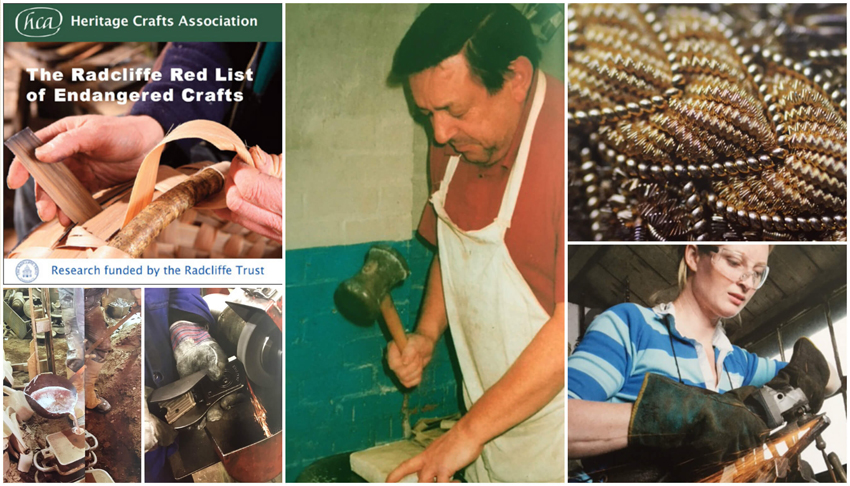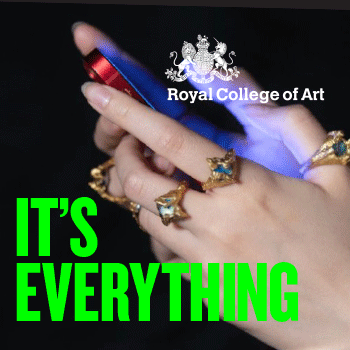New Research Shows Rare Craft Skills on The Brink of Extinction
Craft of Gold Beating Now Extinct New Research Shows
Reading Time:
1 min {{readingTime}} mins
New research by the Heritage Crafts Association has found many traditional craft skills in the UK to be hanging on by a thread including a handful of metal working skills. Gold beating is now an officially extinct craft no longer being practiced in the UK. Critically endangered metal skills are listed as metal thread making, hat block making, plane making, saw making and spade making. Metal working skills are then also listed on the Endangered List of The Radcliffe Red List of Endangered Crafts.
The report identifies seventeen crafts as being critically endangered, including coach and wagon making, saw making, metal thread making, and swill basket making. These crafts have very few practitioners, usually spread across just one or two businesses, and few have any trainees. The reasons crafts become critically endangered are varied, but may include limited opportunities for training, low financial viability, or no way for the skills and knowledge to be passed on.
Greta Bertram, who led the research on behalf of the Heritage Crafts Association, said,
“The Radcliffe Red List of Endangered Crafts is the first research of its kind in the UK. We’re all familiar with the idea of a red list of endangered species, but this is the first time the methodology has been applied to our intangible craft heritage. While some crafts are indeed thriving, the research has shown that all crafts, and not just those identified as critically endangered, face a wide range of challenges to their long-term survival. When any craft is down to the last few makers it has to be considered at risk as an unpredicted twist of fate can come at any time.”
The Heritage Crafts Association launched the Radcliffe Red List of Endangered Crafts this week at the House of Lords and have since been featured on Radio 4's Womans' Hour and BBC's The One Show. Greta Bertram the researcher behind the report made an empassioned presentation at the House of Lords explaing her findings.

Metal working skills included in the categories:
Extinct
Crafts classified as ‘extinct’ are those which are no longer practised. For the purposes of this research, this category only includes crafts which have become extinct in the past generation.
- Gold beating
Critically endangered
Crafts classified as ‘critically endangered’ are those at serious risk of no longer being practised. They may include crafts with a shrinking base of craftspeople, crafts with limited training opportunities, crafts with low financial viability, or crafts where there is no mechanism to pass on the skills and knowledge.
- Hat block making
- Metal thread making
- Plane making
- Saw making
- Spade making (forged heads)
Endangered
Crafts classified as ‘endangered’ are those which currently have sufficient craftspeople to transmit the craft skills to the next generation, but for which there are serious concerns about their ongoing viability. This may include crafts with a shrinking market share, an ageing demographic or crafts with a declining number of practitioners.
- Arrowsmithing
- Bell founding
- Bicycle making
- Braiding
- Brass instrument making
- Clock and watch making
- Coppersmithing (objects)
- Engine turning (guilloché)
- Folding knife making
- Gilding
- Hand grinding
- Leadworking
- Scissor making
See the full list here
The UK has amazing heritage buildings which are supported by different agencies and which also can also provide a source of income.
We also have a great heritage of traditional craft skills and world-renowned makers, yet these skills and knowledge receive little recognition or support, largely because they fall between those bodies which advocate for heritage and focus on buildings, monuments and artefacts, and the arts which emphasise the new and innovative. Thus, heritage craft skills have declined rather than thrived in the way that they could have; by replenishing and enhancing the stock of treasures which populate our heritage buildings and people’s homes.
Ian Keys, Chair of the Heritage Crafts Association said about the research,
"We would like to see the Government recognise the importance of traditional craft skills as part of our cultural heritage, and take action to ensure they are passed on to the next generation. Craft skills today are in the same position that historic buildings were a hundred years ago – but we now recognise the importance of old buildings as part of our heritage, and it’s time for us to join the rest of the world and recognise that these living cultural traditions are just as important and need safeguarding too.”
More information about the Radcliffe Red List of Endangered Crafts
heritagecrafts.org.uk/redlist
See the new research report:
heritagecrafts.org.uk
Image credits: heritagecrafts.org.uk
Author:
Published:









